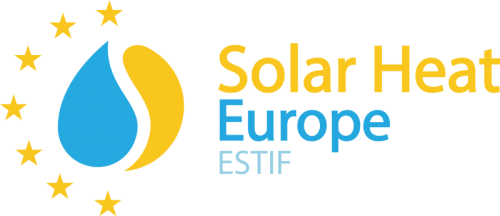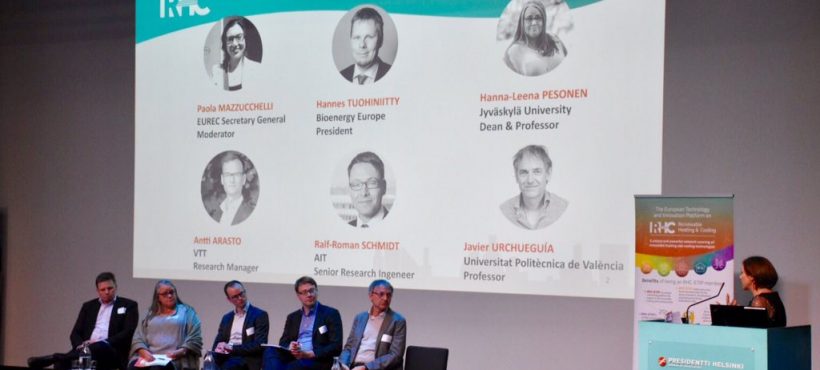The RHC-ETIP (Renewable Heating and Cooling European Technology and Innovation Platform) hosted its annual conference, 100% Renewable Future on the 28th of October in Helsinki. The event saw the participation of experts from the platform, stakeholders from Finland and Europe, and representatives from the European Commission and the Finnish Presidency to the EU also among the speakers.
The conference started with a technical workshop, where projects on renewables involving buildings, cities, districts and industries were presented. In the industries session all projects selected were on solar technologies (both solar thermal and CSP) and showed best practice examples in which Solar Heat Europe’s members are directly involved.
Among the different topics under discussion, the one on electrification of the heating sector raised several questions and great attention from the audience, in that regards, different positions were presented. One of the main challenges in this context is that a massive electrification won’t be based on renewables but rather locking in fossil fuels as natural gas or even coal, well beyond 2030 and 2050. To avoid this, the ideal solution should be a combination of direct heat technologies for lower temperature needs (below 500 °C), using higher exergy type of energy as electricity for transport and higher temperature needs.
The RHC 2050 Vision
The 100% Renewable Future event was also the occasion to present the recently published RHC 2050 vision. The document shows how RHC technologies are mature and effective in the market, and play a key role in different areas, from individual residential buildings to industrial process heat applications. The vision also addresses policy and social barriers that RHC technologies are facing, and presents some concrete policy asks with the aim of:
- ending subsidies for fossil fuels, and phasing out polluting technologies
- fostering the use of smart energy systems based on automated controls and AI
- actively engaging citizens and businesses in the sustainable transition
- enabling innovative business models and financial investments to support RHC technologies
I Chair European cross-sectoral group. We’ve just published the vision https://t.co/8kkIKYnhBB in 4 segments 1️⃣industry2️⃣cities3️⃣districts4️⃣building- ALL agree: 1️⃣create obligation2️⃣remove fossil fuel as option – @ScotGovEnergy Need to “take poison off the menu” https://t.co/dlWCfsAwn6 pic.twitter.com/730i4MbM6s
— Dave Pearson (@wasteheatuser) October 30, 2019
Next steps
After the publication and presentation of the 2050 Vision, the Secretariat of RHC-ETIP and the experts involved are already planning the next steps ahead: the development of a Strategic Research and Innovation Agenda (SRIA). The SRIA is supposed to be ready by October 2020 and will address the main challenges and research and innovation needs in the RHC sector. The aim of the document is to bring the perspective of RHC technologies in the overall debate about Horizon Europe and take tangible steps to promote breakthrough innovation in this field. In this context the RHC-ETIP already published a joint position paper on Horizon Europe.
About the RHC-ETIP
The RHC-ETIP was founded in 2010 with the support of the European Commission. Nowadays, this unique platform gathers between 800 and 900 experts from industry, research and academia. The platform represents all renewable heating and cooling technologies, including biomass, solar thermal, heat pumps, district heating and cooling, and thermal energy storage, and has been recently integrated with horizontal working groups focusing on industries, cities, districts and buildings.


Leave a Reply